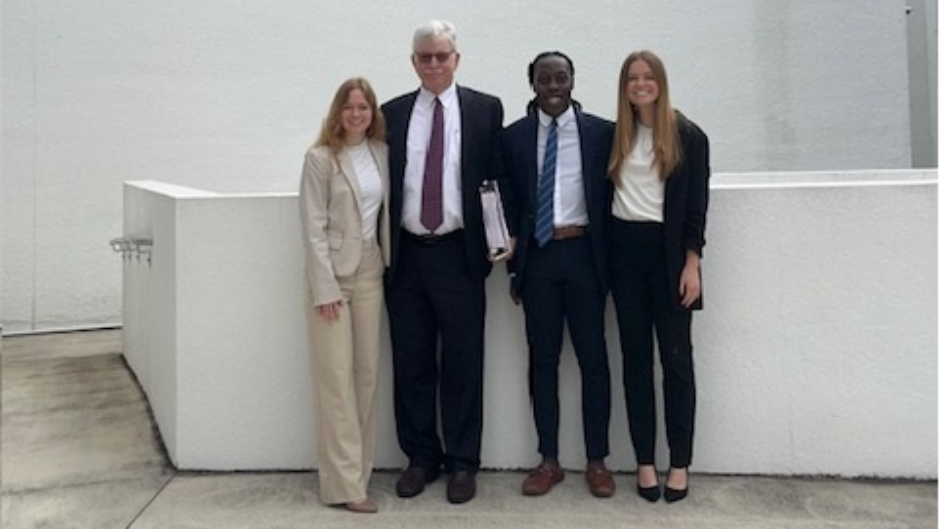Professor Bernie Perlmutter and Children and Youth Clinic students defended an intellectually disabled child after the Agency for Persons with Disabilities denied them health care due to the agency's I.Q. cutoff.
The APD denied the child's health care application due to their I.Q. assessment claiming the child's I.Q. is one point higher than their 70 I.Q. limit. Perlmutter recently held an oral argument in the 3rd District Court of Appeals to denounce the agency's decision, arguing that the APD should consider statistical errors in I.Q. measurement.
"Our student team and I reviewed a sizable volume of evaluations, school records and other forensic medical documents, and we determined that the APD decision was arguably incorrect," Perlmutter said.
Perlmutter is co-director of the clinic, which represents disabled foster children and former dependency youth in APD appellate, Social Security, school disability, independent living, education, and immigration hearings.
With every case, the clinic ensures the children have a say in court proceedings.
To prepare their appeal, the clinic hired clinical psychologists to evaluate if the child met the APD's criteria to be considered intellectually disabled. The psychologists found the child's I.Q. to be lower than what the APD deemed, permitting the child to get benefits according to APD policy.
"Learning about the relevant rules of the Florida administrative code were really important for purposes of the preparation and for the proposed final order," said Liza Birchansky, J.D. '23, who served as co-counsel at the hearing and represented the client as a student in all phases of the 2022 administrative hearing, along with Tiffanie Monplaisir, J.D. '23. "That's really what you're working off of."
The clinic then used the United States Supreme Court's decision in Hall v. Florida in their defense. In Hall v. Florida, SCOTUS ruled that courts can't rely solely on I.Q. scores to determine a person's disability but on statistical measurement errors based on a range of scores.
"It truly takes a team—not only experts who perform the testing and detailed analysis, but also individuals who know and care for the client and understand their day-to-day functioning," Birchansky said.
Many interns have worked on this client's case over the years. In addition to Birchansky and Monplaisir, student interns Corinne Milnamow and Noah Matthews, both 3Ls, worked on the appellate briefs. Students Kim Markus, Omarley Spence, and Lauren Lackey helped Perlmutter prepare for the oral argument.
The district court ruled in favor of the APD, with one judge dissenting. Despite the outcome, Perlmutter looks forward to assisting youth with his strong faculty and support staff, and Miami Law students.
"The future of the Children and Youth Law Clinic looks good," Perlmutter said.
Learn more about the Children and Youth Law Clinic.

